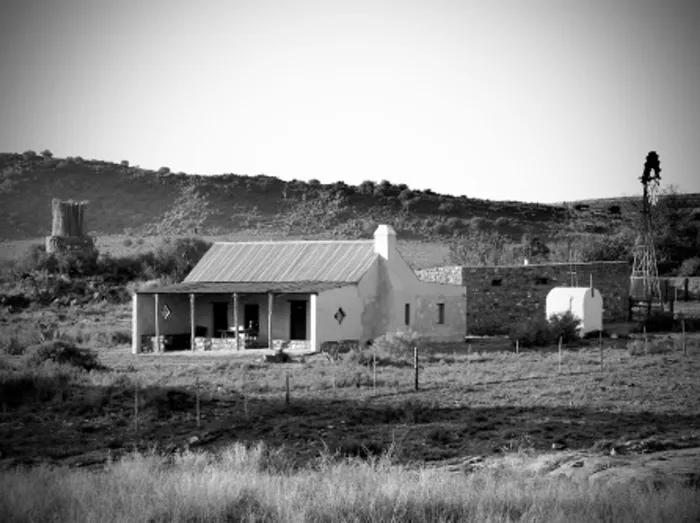Zen in the Karoo

One of the beginnings to a unique book on Zen Buddhism was a pavement cafe conversation about five years ago in Durban.
Antony Osler, a human rights advocate, sheep farmer and family man also happens to be a Zen monk, and after one of his regular teaching visits to the Buddhist Retreat Centre in Ixopo he sat over coffee with centre directors Louis and Chrisi van Loon.
"Somehow the expression 'stoep Zen' popped out," Olser said in an interview after the book's launch in Durban.
It grabbed the imagination of his friends - and, later, Jacana publishers - and encapsulated the impulse he had long had to see if an ancient spiritual tradition from the East could find expression through his own experience and life on and around Poplar Grove, his farm home near Colesberg in the Free State.
Could the tough exotic plant that is Zen Buddhism, in other words, take root in the dusty soil of the Karoo?
It's one thing to have a catchy title for a book, another to produce the contents. With his time divided between the farm - where he lives with wife Margie and daughters Emma and Sarah - and two weeks on the road each month handling legal and labour issues, Osler began looking for words to put on paper. As far as he knew, no other book on Zen had attempted this form of presentation so he had no model to draw from.
"I wanted to work things out for myself," he recalled, "and wondered if what was in my mind would become more real when I put words down.
"The first step was relocating traditional Zen stories to see if they kept their punch. Could a story from a monastery in Japan make sense here?" For the remote and alien to start to become local and familiar, cypress trees and mountains needed to morph into koppies and windmills. They did.
Then he began seeing suitable stories in front of his eyes.
"It got very exciting because I started looking at everybody differently, noticing a passing comment that was so clear and appropriate, and little kindnesses and wisdoms from ordinary people."
The popular image of Buddhism often fixes on shaven heads and saffron robes, but everyday practice is about clarity of mind, compassion and finding the heart of each moment. And moments began presenting themselves in a way that supported his creative task and reinforced his spiritual awareness. The richness of stoep conversations, rugby games, sheep shearing, thunderstorms and family birthdays began naturally to suggest teachings.
One of the Zen vows he mentions in the book is to ask how present and attentive one can be in every situation and relationship: clear and compassionate or sticky and distracted?
Osler responded with the clarity that comes from years of mental training and the ease of a born storyteller. Anecdotes, poetry, Buddhist principles and recollections of his monk's training with reflections on the Karoo landscape and heart-felt thoughts on our seismic politics began to mesh. He even bought a camera and shot many of the book's evocative black and white photographs.
The result is a remarkable book that is honest, lyrical, elegant, wise and funny. (Has Herman Charles Bosman finally met his match?) Something of what Osler has assimilated from 30-plus years of Buddhist practice radiates quietly from every page.
His interest in this spiritual tradition began in England during the 1970s when he met a group of young Tibetan monks. "I was fascinated by their mixture of brightness and seriousness, playfulness on the one hand and the ability to sit like rocks for hours on end in meditation on the other. And they didn't judge anybody," he said.
He started studying with a Tibetan teacher but found it very culturally specific. "The question rose for me then - as it did with Stoep Zen - how do I honour this yet make it real for me?"
After a spell as the first meditation teacher at the Ixopo retreat centre, he undertook three years' training as a monk in a Californian Zen centre. The question was there again: how to pare down the original Japanese teachings to essentials that could make sense to someone walking under a Karoo sky.
He's been "unpacking and rebuilding" Zen ever since his return to secular life - through marriage and work, the birth of our democracy, his personal practice and the retreats he's led at Poplar Grove and elsewhere. And the book is a finely judged and beautifully crafted testament to that effort.
Zen is about posture and breathing, meditation and chanting but it's also about an open-mindedness that's able to see everything as new and fresh. "I am a Zen African," Osler writes. "That means I have no choice but to open my heart." For the rest of us, being open to the book is a good start.
- Stoep Zen published by Jacana; R175.
- For information on Zen retreats go to: Antony Osler